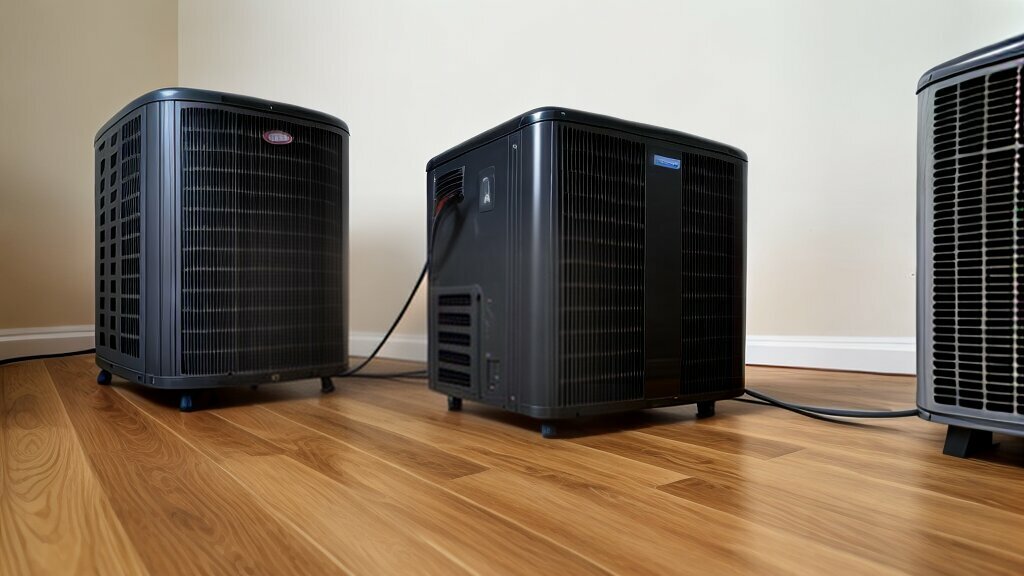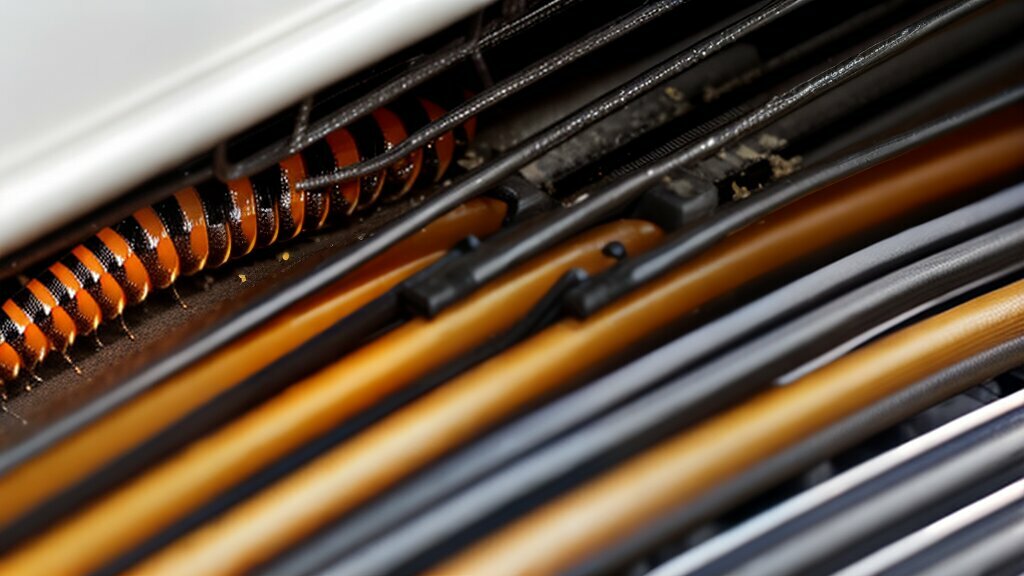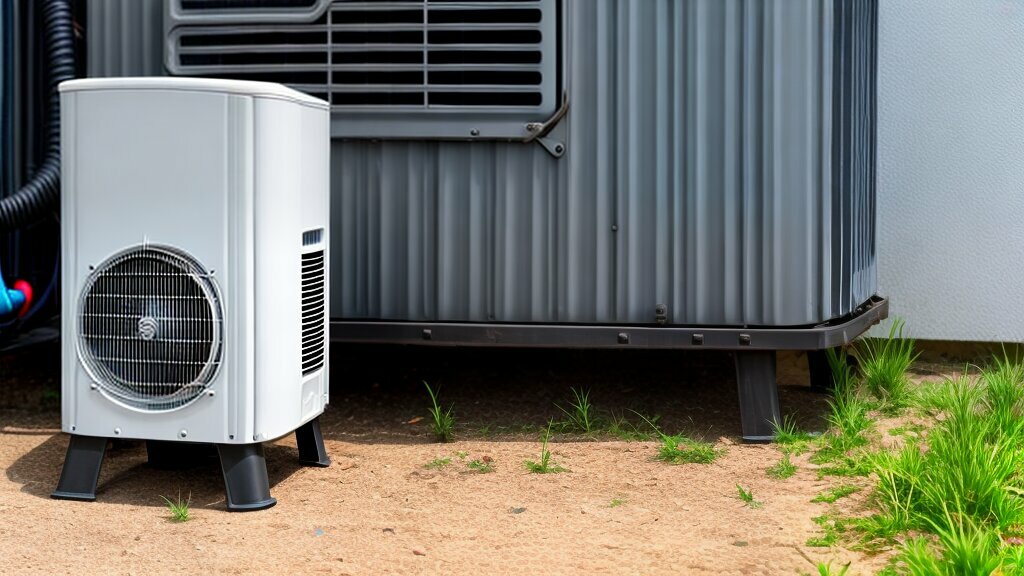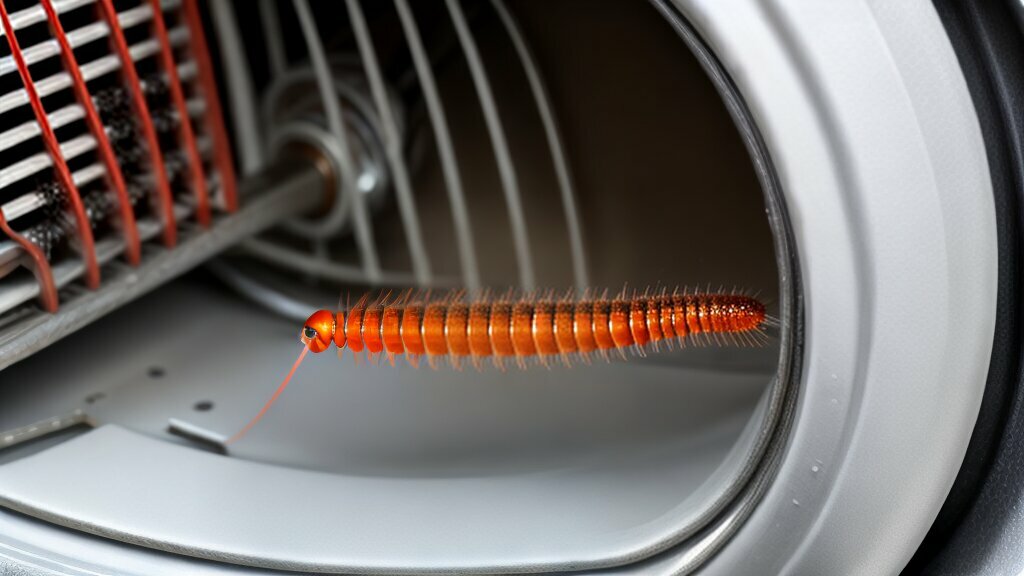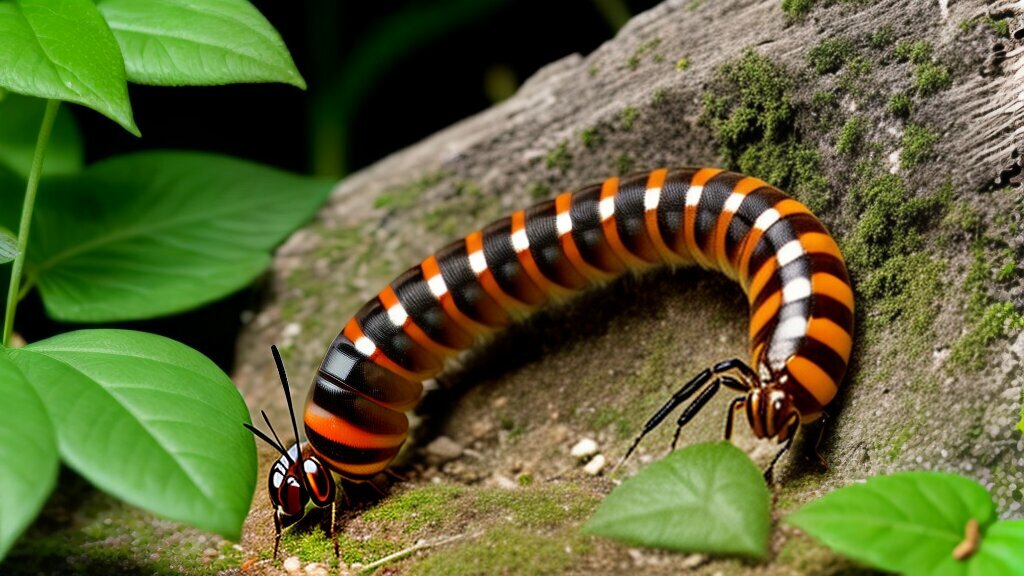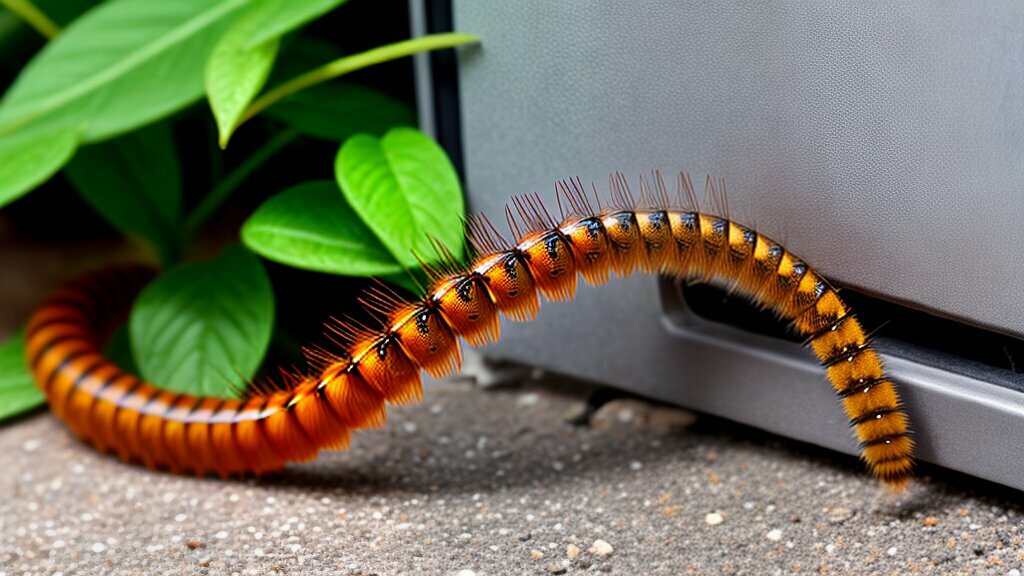Centipedes are fascinating creatures that have long been the subject of scientific inquiry. They are also known for their agility, speed, and predatory behavior, which make them a formidable opponent for any potential prey. However, there is much that remains unknown about their behavior, including whether they are attracted to or repelled by air conditioning.
In this section, we will delve into the behavior of centipedes and explore whether they are drawn to air conditioning units. We will also discuss their ability to survive in air-conditioned environments and the physiological responses they exhibit in relation to temperature changes.
Centipedes have been observed in a variety of indoor environments, including air-conditioned spaces. However, the extent to which they are affected by air conditioning remains unclear. Some experts believe that centipedes may seek out air-conditioned spaces to escape hot temperatures, while others suggest that they may be repelled by the artificial climate.
So, do centipedes like air conditioning? The answer is not straightforward, as the behavior of these creatures can vary depending on a variety of factors, including species, location, and individual preferences.
Key Takeaways
- Centipedes are fascinating creatures that have long been the subject of scientific inquiry.
- The behavior of centipedes in relation to air conditioning is complex and not fully understood.
- Centipedes may seek out air-conditioned spaces to escape hot temperatures, but they may also be repelled by the artificial climate.
Centipedes in Air Conditioning Units: Understanding the Connection
Centipedes are a common household pest, and they have a particular affinity for air conditioning units. These creepy crawlers love to nest and thrive in the cool, moist environment that air conditioning provides, and homeowners often find themselves dealing with an infestation.
But why are centipedes drawn to air conditioning units in the first place? The answer lies in their preferences for dark, damp areas. Air conditioning units provide the perfect conditions for centipedes to thrive, as they offer a constant source of moisture and a comfortable temperature range.
To prevent centipedes from infiltrating your air conditioning system, it’s essential to take preventative measures. Seal up any cracks or gaps in the unit, ensuring that it is properly ventilated and drains are free from debris. A professional exterminator can also help control an infestation and ensure that the air conditioning unit remains centipede-free.
Controlling Centipedes in Air-Conditioned Spaces
Once centipedes have established themselves in your air conditioning unit, it can be challenging to get rid of them. However, there are several effective methods for controlling and preventing their presence in air-conditioned spaces.
- Use a dehumidifier to reduce the moisture in the air, making it less hospitable for centipedes.
- Regularly clean and maintain the air conditioning unit to prevent buildup of debris and mold, which can attract centipedes.
- Seal all cracks and gaps in the walls and foundation of your home, preventing centipedes from entering in the first place.
- Use natural repellents such as citrus or peppermint oils to deter centipedes from nesting in the area.
- Consult with a professional exterminator to create a customized pest control plan for your home.
By taking these steps, homeowners can effectively manage and prevent centipedes from infiltrating their air conditioning systems and creating an uncomfortable, unsanitary living situation.
Centipedes and Temperature Preferences: How They Adapt
Centipedes are cold-blooded creatures that rely on their environment to regulate their body temperature. As such, they are highly adaptable to different climates, including air-conditioned spaces.
In order to survive in air conditioning, centipedes have developed various physiological responses and behavior modifications. One such adaptation is their ability to seek out warmer areas within a space, such as near heat-emitting appliances or in sunny spots near windows. They also have a tendency to nest in areas that are less affected by air conditioning, such as crawl spaces or basements.
However, centipedes can also become lethargic and less active in colder temperatures, which may reduce their overall survival rate in air-conditioned environments. Additionally, sudden changes in temperature can trigger stress responses in centipedes, leading to erratic behavior and decreased lifespan.
Overall, centipedes have developed a number of adaptations to survive in air-conditioned spaces, but their behavior may still be influenced by temperature fluctuations. Homeowners should take this into consideration when managing centipede populations in their indoor spaces.
The Impact of Air Conditioning on Centipede Behavior
Air conditioning systems can significantly impact the behavior of centipedes. These systems create a controlled indoor climate, which can make it easier for centipedes to not only survive but also thrive. However, the way centipedes respond to air conditioning can vary depending on the specific species and the conditions of the environment. To better understand how air conditioning influences centipede behavior, let’s take a closer look.
| Activity Levels | Nesting Behavior |
|---|---|
| Activity levels: Research has suggested that centipedes are less active in environments with lower temperatures, which is common in air-conditioned spaces. However, this does not necessarily mean that they are less likely to be present. Centipedes can still find ways to move around the building, such as through wall voids or cracks in the foundation. | Nesting behavior: Centipedes are known to build nests in damp, dark areas – such as basements and crawl spaces. Air-conditioned buildings can provide these conditions, making them an attractive location for centipedes to nest. |
Preventing centipedes from nesting in air conditioning systems is critical to keeping them out of the indoor environment. Homeowners can take certain steps to reduce the likelihood of centipedes nesting, such as reducing humidity levels and sealing any cracks or gaps in the building’s foundation. Regular professional inspections and cleaning of the AC system can also help prevent centipede infestations.
Overall Survival
“The air conditioning system creates a perfect environment for centipedes to thrive – it’s cool, damp and dark. This makes it important for homeowners to take measures to prevent them from entering the system, as they can cause damage and create unpleasant odors.”
Centipedes can survive in air conditioning systems, but it’s important to note that they require certain conditions to do so. They need moisture and a source of food, such as insects or other small creatures. While air conditioning can provide a suitable living environment for centipedes, the lack of a food source can limit their survival.
Prevention is key in controlling centipedes in air-conditioned spaces. Regular inspection and cleaning of the AC system, as well as sealing any entry points, can help prevent them from entering and reproducing. Homeowners can also use insecticides and other pest control methods to keep centipede populations under control.
Managing Centipedes in Air-Conditioned Spaces
Controlling centipedes in air-conditioned spaces can be challenging but there are several strategies that homeowners can employ to keep these pests at bay. Here are some tips:
Natural Methods
1. Keep your home clean and decluttered. Centipedes are attracted to cluttered and dirty environments, so keeping your home clean and tidy can go a long way in preventing their presence. Vacuum floors, wipe surfaces, and remove any unnecessary clutter.
2. Seal any cracks or gaps around windows and doors. Centipedes can slip through even the smallest of openings, so it’s important to seal any gaps or cracks around your windows and doors. Use caulk or weatherstripping to seal these areas.
3. Use essential oils. Certain essential oils, such as lavender, tea tree, and peppermint, have been found to be effective in repelling centipedes. Simply add a few drops to a spray bottle and spray in areas where centipedes are likely to congregate.
Chemical Methods
1. Use insecticides. If natural methods aren’t working, it may be necessary to use insecticides to control centipedes. Look for products that specifically target centipedes and follow the instructions carefully.
2. Hire a pest control professional. If you’re unable to control centipedes on your own, consider hiring a pest control professional. They can assess the situation and provide effective treatments to eliminate centipedes from your home.
Preventing Centipedes in AC Systems
If you have central air conditioning, it’s important to regularly maintain and clean your system to prevent centipedes from infiltrating. Here are some tips:
- Replace air filters regularly. Dirty air filters can attract centipedes, so it’s important to replace them regularly.
- Keep your system clean. Centipedes can nest in dirty AC systems, so it’s important to keep your system clean by having it professionally cleaned regularly.
By employing these methods, homeowners can effectively manage centipedes in air-conditioned spaces and ensure a comfortable indoor environment.
Centipedes and Air Conditioning: Key Takeaways
Centipedes are complex and adaptable creatures that have evolved to survive in various climates, including air-conditioned environments. As we have discussed in this article, their behavior and preferences in relation to air conditioning may vary depending on the species, temperature, and humidity levels.
Whether you are dealing with a centipede infestation in your home or trying to prevent their intrusion in your air conditioning system, there are several effective strategies for management. These include natural remedies, chemical treatments, and preventative measures such as sealing cracks and crevices.
It is important to remember that while centipedes may be alarming to some, they play an important role in our ecosystem by preying on other insects and pests. By understanding their behavior and implementing appropriate control measures, we can maintain a comfortable indoor environment while preserving the natural balance of our surroundings.
In summary, centipedes can survive in air conditioning and their behavior in indoor environments may be influenced by temperature, humidity, and access to prey. Effective management techniques include a combination of natural and chemical treatments, as well as preventative measures. By staying vigilant and informed, we can coexist with these fascinating creatures while keeping our homes safe and comfortable.
Conclusion
Understanding the behavior of centipedes in air-conditioned environments is crucial for maintaining a comfortable indoor climate while keeping pests at bay. From examining centipede attraction to AC units to discussing effective management techniques, this article has provided valuable insights into this topic.
Overall, it is clear that centipedes can survive in air conditioning and may even be attracted to the cool, humid conditions it creates. However, with proper prevention and management strategies in place, homeowners can keep centipedes out of their AC systems and create a pest-free indoor environment.
Remember, the key to controlling centipedes in air-conditioned spaces is to implement a combination of natural and chemical methods, including sealing entry points, reducing moisture, and using insecticides as necessary.
By understanding the behavior of centipedes in relation to air conditioning and implementing effective management techniques, homeowners can enjoy a comfortable indoor climate without the hassle of unwanted pests.
FAQ
Q: Do centipedes like air conditioning?
A: In this section, we will delve into the behavior of centipedes and explore whether they are attracted to or repelled by air conditioning. We will also discuss their ability to survive in air-conditioned environments.
Q: Centipedes in air conditioning units: understanding the connection
A: Here, we will examine the relationship between centipedes and air conditioning units. We will explore why centipedes may be drawn to these units and discuss effective methods for controlling and preventing their presence in air-conditioned spaces.
Q: Centipedes and temperature preferences: how they adapt
A: In this section, we will explore the temperature preferences of centipedes and how they adapt to different climates, including air-conditioned environments. We will discuss their physiological responses and behavior modifications in relation to temperature changes.
Q: The impact of air conditioning on centipede behavior
A: Here, we will discuss the effects of air conditioning on centipede behavior. We will explore whether air conditioning influences their activity levels, nesting behavior, and overall survival in indoor environments. Additionally, we will provide practical tips for preventing centipedes from infiltrating AC systems.
Q: Managing centipedes in air-conditioned spaces
A: In this section, we will delve into effective strategies for managing centipedes in air-conditioned spaces. We will discuss natural and chemical methods for controlling their population and provide practical tips for homeowners to keep centipedes at bay.
Q: Centipedes and air conditioning: key takeaways
A: Here, we will summarize the main points discussed in the article regarding centipedes and air conditioning. We will emphasize the key takeaways, including centipedes’ ability to survive in air conditioning, their behavior in indoor climates, and effective management techniques.

